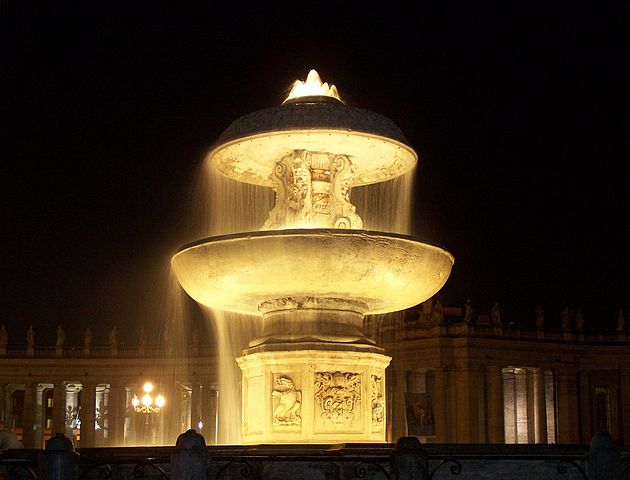Jenny Hall
Verses from the Dhammapada 190/192
Letting-go of cherished things can be fearful for 'I', but taking refuge also means gaining support. In this verse Jenny Hall discusses the strength found in taking refuge in Buddha.

‘He who takes refuge in the Buddha … will be delivered from all suffering.’
A refuge is a place of safety from danger or trouble. In our uncertain world, we seek security in myriad ways.
One evening, when I was a child, my parents took me to see an illuminated fountain by the seafront. It was past my bedtime; I had never been out at night before. The immensity of the night sky and the changing, flashing lights disturbed me. Curling up on a bench, I proclaimed peevishly that I wanted my little bed.
Through fear, we seek many variations of ‘my little bed’: relationships; possessions; beliefs; intoxicants. The Buddha taught that clinging to such attachments generates suffering, because everything is constantly changing . Nothing lasts.
In the Sixties, when it was very fashionable to follow various gurus, I decided to take up hatha yoga. After a while, I had a dream: an artist was creating beautiful pots from twisted branches. Inside were frightened birds with staring eyes. The dream seemed to point to the fact that, although the postures were temporarily calming, ‘I’ – made up of fear – was still trapped inside.
Fear is the non-acceptance of ‘what is’. We spend our lives running away from reality. The Buddha discovered that there can only be freedom from both fear and desire when we face them. When he sat down under the Bodhi Tree, fear and desire manifested as demons, as Mara’s daughters. However, at that point in his own training, he had already suffered the passions and sloughed off the attachment to ‘I’; he was empty. There was nothing for the demons to attack.
For many years, I clung to the idea that I couldn’t function without a good night’s sleep. Yet insomnia often arose. Before an unusual event that I had judged as ‘exciting’ or ‘worrying’, the desire to be fresh and at my best to cope with the following day’s activity would cause endless thoughts to spin, which tormented me during the night. Each thought would fuel more adrenaline, making sleep impossible. Feeling wretched in the morning, I would often cancel or avoid the commitment with the excuse of feeling unwell. There would be an attempt to avoid recurrences by stocking up on herbal sleep remedies. However, when taking them, the expectation of needing them became self-fulfilling: I would still toss and turn all night.
After starting Zen training, I had the realisation that the desire to sleep and the fear of failing to do so needed to be confronted. The next time insomnia arose, instead of resisting it with thoughts of dread, I welcomed it and said yes to it. Suddenly, awareness opened up and I experienced the feelings just-as-they-are. After a short while, sleep descended quite naturally. On subsequent occasions, when sleep did not come, then gratitude was cultivated for an opportunity to look into the quietness of the night. Sleeplessness was welcomed as a friend. This new attitude made it possible to function the following day without avoiding anything.
When such awareness, known by the sage Krishnamurti as ‘choiceless awareness’, opens, it is like a raindrop falling into a river: we become one with all. There is an energetic, compassionate participation in life.
The fisherman in the following story expresses this kind of fearless involvement:
Kutsugen was a prime minister who had been dismissed from office. Disconsolate, he went to Kôtan and sat by the river. A fisherman saw him and asked: ‘What are you doing here? I thought you were the Prime Minister .’
Kutsugen replied: ‘The world is dirty. I alone am clean. This is the reason I was dismissed.’
The fisherman said: ‘A wise man flows with what is. If the world is dirty, you must jump in the muddy water and splash about .’
Kutsugen answered: ‘I won’t allow my purity to be defiled by the world.’
The fisherman laughed, and sang:
If the water of Sôrô is clear,
I shall wash the ribbon of my hat.
If it is dirty,
I shall wash my feet in it.
Choiceless awareness opens when we abandon the barriers we have built around ourselves. This is the refuge beyond all refuges. It is beyond old age, sickness and death. It is the eternal ‘now’. When we put our faith in it, we, in turn, become a refuge for all.
© Jenny Hall




































































